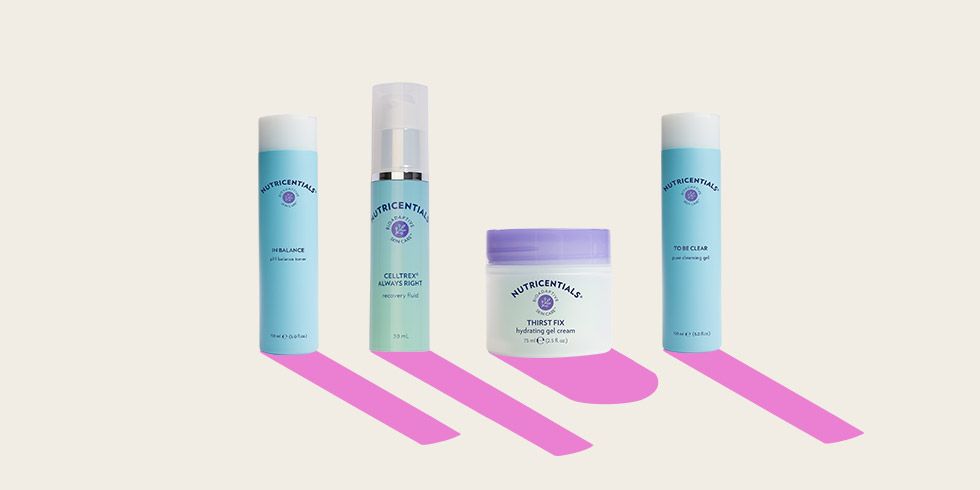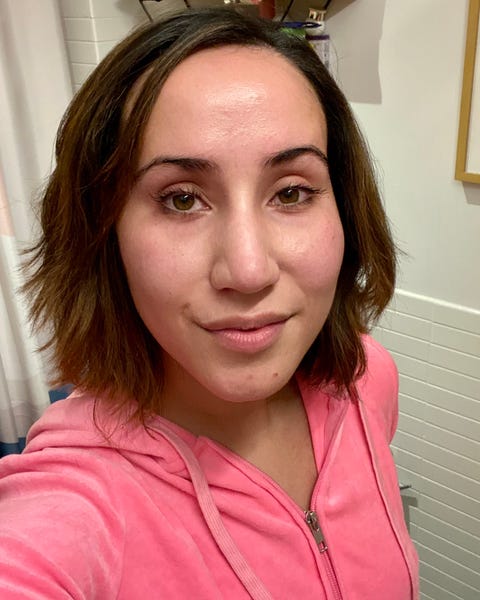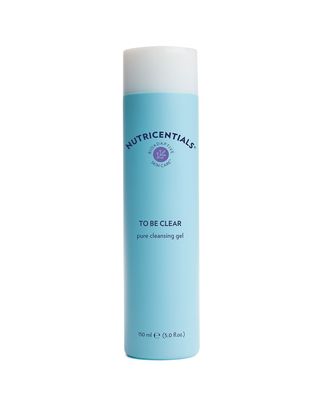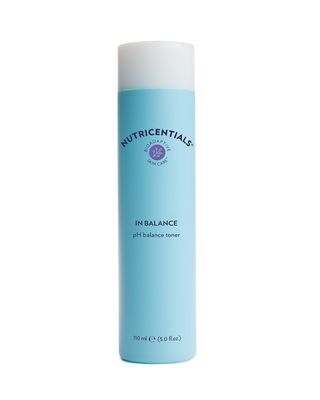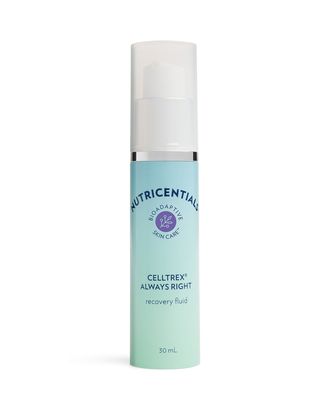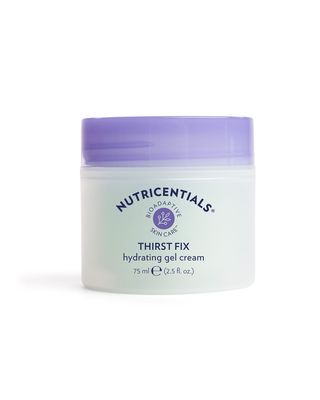If 2020 taught me anything, it was how to be resilient in the face of change. This applied to all aspects of my life—including my skincare routine. Granted, skincare was far from the most pressing issue on 2020’s chaotic agenda, but factors like general stress (you already know), winter’s harsh conditions, and my apartment’s even harsher heating system left my complexion sensitive, dull, and tired-looking. I was also grappling with random breakouts and oily, clogged pores. I knew I needed to adjust my lineup ASAP to fix what was happening to my complexion.
I swapped my skincare go-tos out for Nu Skin’s bioadaptive lineup. According to the brand, a bioadaptive product is one that contains “intuitive” ingredients that can help your skin better adapt to environmental stressors. (More on this later.) Yes, it sounds too good to be true. That’s why I decided to trial the lineup (specifically its micellar water, cleanser, toner, serum, and moisturizer) for two full weeks and tap New York City-based dermatologist Jessie Cheung, MD, for her expert input. Here’s why I’m only using bioadaptive skincare moving forward.
So, what is bioadaptive skincare?
According to Dr. Cheung, bioadaptive formulas harness the power of adaptogens—substances found in certain herbs and botanicals that can potentially help your body resist physical and physiological stress. “Because the botanicals are found in such extreme environments, they have evolved, forming strong reparative and antioxidant defense mechanisms,” she says.
Nu Skin’s Nutricentials line uses adaptogens from botanicals like rhodiola (a flowering plant), maral root, siberian ginseng, chaga mushroom, and resurrection plant to help support your complexion in different ways. According to cosmetic chemist Ginger King, rhodiola may help boost immunity and protect against environmental stressors. “It works with maral root to fight oxidative stress,” she says. She adds that siberian ginseng may help calm an irritated complexion, chaga mushrooms can help promote healing, and resurrection plant can “deliver intense hydration.”
Because these botanicals adapt to stress, King says they can ultimately help strengthen your skin’s barrier, boosting its resilience.
Bioadaptive skincare helped balance my skin.
My skin’s sensitivity was an indicator that its pH was off-kilter, according to Dr. Cheung. “The naturally acidic pH of our skin is frequently disrupted by cleansing,” she says. Luckily, it can return to normal (a.k.a. balanced) very quickly by swapping my harsher formulas for products that contain a mix of soothing, anti-inflammatory ingredients.
Using the To Be Clear Cleansing Gel and In Balance Toner daily helped return my skin to its less sensitive and irritated state. The gentle cleanser helped whisk away oil and dirt without irritating skin or stripping it of its natural bounce and much-needed moisture. The toner, which contains sebum-managing witch hazel, helped prevent clogged pores which can cause breakouts and inflammation.
This content is imported from {embed-name}. You may be able to find the same content in another format, or you may be able to find more information, at their web site.
I followed with the Celltrex Always Right serum and Thirstfix gel cream, which worked in tandem to help keep my skin calm, balanced, and hydrated. The hydrating formulas were lightweight, easy to layer, and left no residue behind. The clean, but not overpowering, scent was also a nice touch.
I was still experiencing slight redness after a week of testing, but my breakouts had been reduced significantly, and my complexion was no longer sensitive to the touch. Three days later, my skin looked so good without makeup, I had to take advantage of the good light in my car and snap a selfie. Compared to the beyond-slick finish and texture I battled only a week earlier, my skin was smooth, soft, and insanely glowy.
Bioadaptive products made my skin seem more resilient to environmental stressors.
According to Dr. Cheung, bioadaptive skincare formulas can act as a reboot—similar to one you give your laptop after you’ve ignored the software update prompts for weeks. (Oops.) Just as those bug fixes help your computer prep for any potential threats, bioadaptive botanicals help give your skin the tools to better respond to stressors like pollution, extreme heat, or extreme cold. “Compared to traditional skincare that uses one-size-fits-most antioxidant protection, bioadaptive skincare allows your skin to self-regulate,” Dr. Cheung says.
The Nutricentials range seemed to reset my skin from its acne-prone state and be less reactive to my surroundings. Real talk: The visible progress wasn’t instant. The changes to my complexion were subtle within the first few days of testing, but gradually became less red and sensitive in week one.
The results get even better with time.
While Dr. Cheung notes that the bioadaptive ingredients start working upon application, the results become more apparent with consistent use. “Long-term benefits from changes in cellular expression can take between four to six weeks,” she says.
Even after just two weeks testing the range, the results were pretty significant. Although I still had some lingering, weather-triggered redness, my skin felt far less sensitive, and the excess oil production I once struggled with seemed to level out. While I could imagine adding a retinol into the mix moving forward, Nu Skin’s bioadaptive formulas have definitely gained a permanent spot in my skincare lineup, and I can rest assured knowing they’ll be able to handle whatever the environment (or life in general) throws at my complexion.
This content is created and maintained by a third party, and imported onto this page to help users provide their email addresses. You may be able to find more information about this and similar content at piano.io
